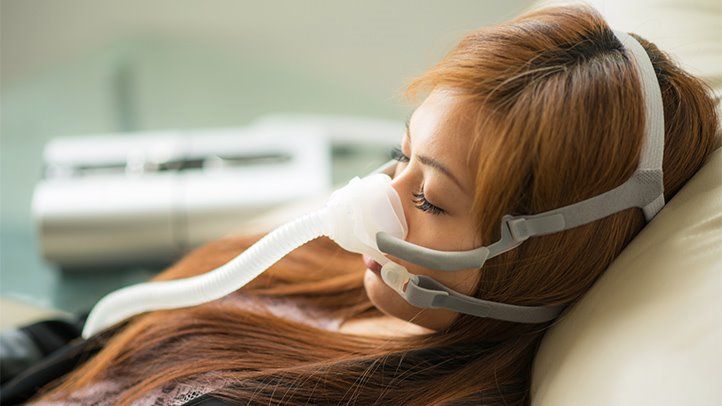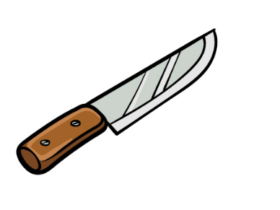Sleep apnea is a potentially dangerous sleep disorder in which breathing stops and starts repeatedly. You may have sleep apnea if you snore loudly and feel tired even after a full night’s sleep.
The most common types of sleep apnea are as follows:
The most common type is obstructive sleep apnea (OSA), which occurs when the throat muscles relax and block the flow of air into the lungs.Central sleep apnea (CSA) is a condition in which the brain fails to send proper signals to the muscles that control breathing.
Treatment-emergent central sleep apnea, also known as complex sleep apnea, occurs when someone has OSA (as determined by a study) that converts to CSA while receiving OSA therapy. You can take Artivigil 150 for treatment of sleep apnea.
Symptoms
The symptoms of obstructive and central sleep apneas overlap, making it difficult to distinguish between the two.
The following are the most common symptoms of obstructive and central sleep apneas:
Snoring is audible.
Episodes in which you stop breathing while sleeping — as reported by another person.
During sleep, I was gasping for air.
I awoke with a dry mouth.
A headache in the morning.
Insomnia is the difficulty of staying asleep.
Excessive daytime sleepiness is defined as hypersomnia.
Having trouble paying attention while awake.
Irritability.
Causes
When the muscles in the back of the throat relax, this type of occurs.The soft palate, the uvula, a triangular piece of tissue hanging from the soft palatethe tonsils, the side walls of the throat, and the tongue are all supported by these muscles.
When you relax your muscles, your airway narrows or closes as you breathe in. You can’t get enough air, which can lower the oxygen level in your blood. When your brain detects that you are unable to breathe, it briefly awakens you so that you can reopen your airway. This awakening is usually so for that there is treatment walkert 150
Risk elements of sleep apnea
Anyone, including children, and adult are also can suffer from . However, certain factors can raise your risk.
Factor of Obstructive sleep apnea (OSA)
The following factors that can increase the risk of this type of sleep apnea:
Weight. Obesity significantly raises the risk of OSA. Fat deposits in the upper airway can obstruct breathing problem. Circumference of the neck. Airways may be narrower in people with thicker necks.
A clogged airway. You might have been born with a narrow throat. Tonsils and adenoids can enlarge & block the airway, especially in children.
Being a man. Men are two to three times more than women to suffer from . Women, on the other hand, are at a higher risk if they are overweight or have gone through menopause.
Growing older. Sleep apnea is significantly more common in older people.
A family tree. Having in your family may be increase your risk.
Use of sedatives, tranquillizers, or alcohol. These substances can worse obstructive sleep apnea by relax the muscles in your throat.
Smoking. Smokers are three times more like than nonsmokers to have obstructive sleep apnea. Tobacco use can be increase inflammation & fluid retention in the upper airway.
Congestion in the nose. You are more like to develop obstructive if you have difficulty breathing through your nose, due to an anatomical problem or allergies.
Medical problems. Some of the conditions that may increase the risk of obstructive apnea include congestive heart failure, high blood pressure, and type 2 diabetes. Polycystic ovary syndrome, hormonal disorders, a history of stroke, and chronic lung diseases such as asthma can raise the risk.
Central sleep apnea
The following are risk factors for this type of sleep apnea:
Growing older. People in their forty and fifty are more like to suffer from central
Being a man. Men are more like than women to suffering from central .
Heart problems. Congestive heart failure raise the risk.
Taking narcotic pain relievers. Opioid medications, particularly long-acting opioids like methadone, increase the risk of central .
Stroke. A stroke increases the risk of developing central .
Complications of apnea
Sleep apnea is a potential fatal medical condition. OSA complications can include:
Daytime exhaustion. The frequent awakenings caused by make typical, restorative sleep impossible, resulting in severe daytime drowsiness, fatigue, and irritability.
You may struggle to concentrate and fall asleep at work, while watching TV, or even while driving. People who suffer from are more like to be involve in car accidents and workplace accidents.
You may also be irritable, moody, or depressed. Children and adolescents with may struggle in school or have behavioural issues.
High blood pressure or cardiac heart related issues. OSA causes sudden drops in blood oxygen levels, which raises blood pressure and strains the cardiovascular system.
OSA may also increase your chances of having another heart attack, having a stroke, or having irregular heartbeats such as atrial fibrillation. Multiple episodes of low blood oxygen (hypoxia or hypoxemia) can lead to sudden death from an irregular heartbeat if you have heart disease.
Diabetes type II. Slee raises your chances of developing insulin resistance and type 2 diabetes.
Syndrome of metabolism. High blood pressure, abnormal cholesterol levels, high blood sugar, and an increase waist circumference are all symptoms of this disorder, which has been linked to an increased risk of heart disease.
Complications from medications and surgery. Certain medications and general anaesthesia can cause obstructive sleep apnea. Because they are prone breathing problems when sedate and lying on their backs, people with may be more like to have complication after major surgery.
Inform your doctor about your sleep apnea and how it is being treated before undergoing surgery.
Problems with the liver. Sleep apne patients are more likely to have irregular liver function test results, and their livers are more likely to show signs of scarring, a condition known as nonalcoholic fatty liver disease. Obstructive slep apnea
Sleep apn is a potentially dangerous disorder in which breathing stops and starts repeatedly. You may have sleep apnea if you snore loudly and feel tired even after a full night’s.
The most common types of sleep apnea are as follows:
The most common type is (OSA), which occurs when the throat muscles relax and block the flow of air into the lungs. Central sleep apnea (CSA) is a condition in which the brain fails to send proper signals to the muscles that control breathing.
Treatment-emergent central sleep apnea, treatment that make you normal is artvigil 150 , occurs when someone has OSA (as determined by a study) that converts to CSA while receiving OSA.
Visit : gamebainohu








Leave a Review